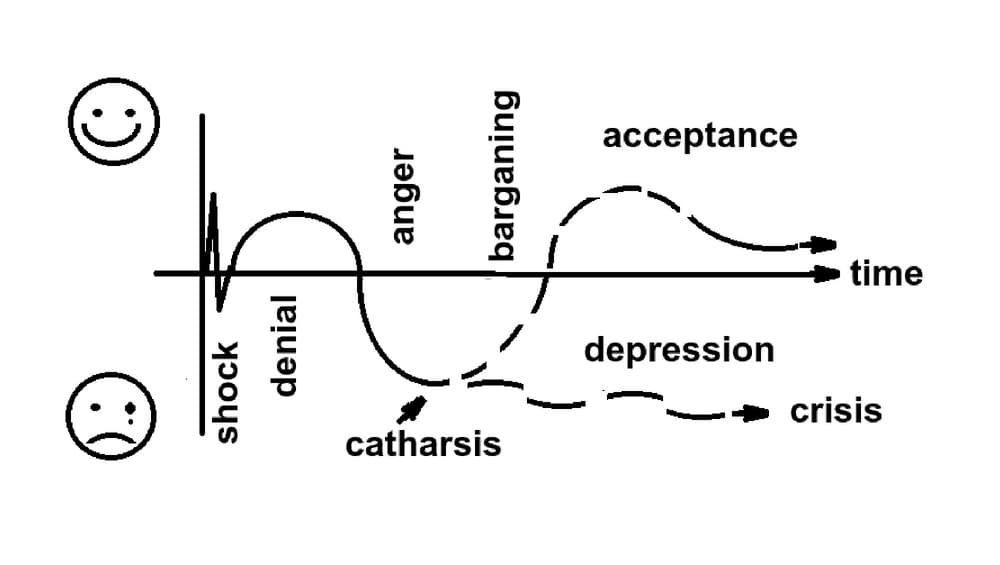On May 10th 2018, India lost one of its most celebrated and decorated IPS officers Himanshu Roy, who associated with many of the country’s high-profile cases. His death was made more unsettling by that fact that it was a suicide, a rather unfitting way for a nation’s hero to go. Almost at the same time as the news of his death was announced, speculations about Roy’s struggle with cancer became rife. But conflicting reports in the media are further deepening the mystery behind his death.
Roy was said to be waging a battle against cancer since the early 2000s when he lost a kidney to the disease. Although the suicide notes mention his struggle with cancer, the doctor who treated him Dr. Nargarkar told the Mid-Day Roy was cancer free and that a targeted therapy helped in his treatment immensely. The autopsy results seem to point towards another thing. Forensic surgeons at the Grant Medical College and GT Hospital found that the cancer had spread to the pelvic area and had even affected his remaining kidney.
While we are not entirely privy to the truth, Roy’s death has broached the topic of suicides in cancer patients. A UK study assessed data from nearly a million cancer patients and concluded that cancer patients were five times more likely to kill themselves than the general population. Suicidal ideation is associated with mental disorders like depression, anxiety and bipolar diseases. So to understand suicides in cancer patients, one must understand the role played by depression. “Studies have shown that 9 out of 10 people with cancer have an underlying tendency for depression,” says Dr. Era Dutta Consultant Neuropsychiatrist and Therapist at Mind Wellness & Fortis Healthcare. The causes may be varied:
Cancer Itself Causes Depression
A cancer diagnosis can create a sense of doom in patients, especially those in the advanced stages. “The low chances of remission and higher incidences of relapses make cancer patients more susceptible to mood disorders like anxiety and depression,” says. Dr. Dutta. But the connection is not linear, she emphasises.
Depression Weakens the Immune System
The immune system, which is critical in fighting cancer cells, gets weakened when the person is depressed. “Depression, makes one negligent towards their own health, which leads to lowered immunity,” says Dr. Dutta. Affected people don’t take nutrition seriously and may barely eat. Depression also elevates the stress hormone cortisol in the body, which whittles down the immune system even further. “And as we know, a weakened immune system can make someone more vulnerable to cancer,” says Dr. Dutta.
Depression Substance Abuse
The relationship between depression and substance abuse is bi-directional or vicious; depression can trigger substance abuse and substance abuse, in turn, can worsen depression. Mental illnesses like depression can also increase a person’s dependence on carcinogenic substances like tobacco and alcohol, which could further explain the cancer-depression link.
Cancer Cells Cause Depression
A 2009 study published in the Proceedings of the National Academy of Sciences of the United States of America also showed cancer cells themselves might be triggering depression in patients. The research conducted on rats said that cancer cells release proinflammatory cytokines, which causes depression-like behaviour in individuals.
Dr. Dutta says that depression is a natural stepping stone towards acceptance in cancer patients. For that, one should understand the Kübler-Ross model, which states there are five stages of grief: denial, anger, bargaining, depression and acceptance.

What may start as a refusal to accept the cancer diagnosis may eventually lead to depression and then to complete acceptance. “But in some patients, the closure may transpire as a peaceful acceptance of the fate or end in suicide,” she rues.
Who is At Risk?
In any kind of cancer, the risk of suicide is 60 percent higher. But certain characteristics make certain patients more vulnerable.
Type of Cancer: According to the American Cancer Society, patients with lung cancer are at the greatest risk of committing suicides. They have a whopping 420 percent higher chance than the rest. Colorectal patients come second with a 40 percent chance. Breast and prostate cancer come third with 20 percent risk.
Gender: Men with cancer, overall, have a higher risk of suicides as compared to the women. They have a 9 fold risk of committing suicide.
Race: Among the races, the Asians are more susceptible to cancer-related suicides. The risk is 13 fold.
Age of Diagnosis: The incidence of cancer suicides increases with age. Older the age of diagnosis, greater the chance of suicide.
Time of Diagnosis: The risk of suicides among patients with cancer is highest in the years immediately after diagnosis.
Lack of Social Support: The study suggests that depressed patients with cancer are more at risk of committing suicide when they lack social support. Being unmarried, widowed or living alone elevates that risk.
What Can Caregivers Do?
Being a caregiver to a cancer patient can be emotionally exhausting. If things take a turn for the worse, the caregivers are left feeling guilty and depressed for not being able to stop the suicide. Caregivers should try to, firstly, identify all the warning signs of suicidal ideation, after which, they should look at more measures to prevent their loved one from committing suicides.
Look out for signs: The classing warning signs of suicides also apply in cancer patients. These include excessive sadness, speaking of dejection and hopelessness with no faith in the future, insomnia, sudden calmness after a depressive spell, withdrawal, speaking of being a burden on the family and loss of appetite that is not related to chemo side effects.
Monitoring Internet Activity: Keep a close watch on their internet activity and look up their search history. “Depressed patients may often look up painless ways to kill themselves. Any such search should serve as a red flag,” says Dr. Dutta.
Psychiatric Help: Cancer patients have a lot to gain from psychiatric support and should go hand-in-hand with their treatment. Research has shown that psychotherapies such as cognitive behaviour therapy, support-expressive therapy, meaning-centred therapy, dignity therapy and cognitive-existential therapy can help in mitigating their fear of cancer and improving their quality of life.
Social Support: “India lacks support groups for cancer patients. They are an excellent medium for helping cancer patients feel accepted,” says Dr. Dutta. Although we may do our very best to understand their pain, it cannot match up with the support they receive from other cancer survivors and fighters in these groups. It can also ease some of their stress.
A cancer diagnosis may seem like a death sentence and Himanshu Roy’s case shows us that it can break the will of even the strongest of people. But with the right support system and close monitoring of your loved one’s mental health, you may be able to save them and instill courage to keep up their brave fight.
(References: Incidence of Suicide in Persons With Cancer, Factors Associated with Suicide Risk in Advanced Cancer Patients: A Cross-Sectional Study, Substance abuse and cancer, The risk of suicide in cancer patients: a review of the literature)
(The above story first appeared on LatestLY on May 14, 2018 02:03 PM IST. For more news and updates on politics, world, sports, entertainment and lifestyle, log on to our website latestly.com).













 Quickly
Quickly


